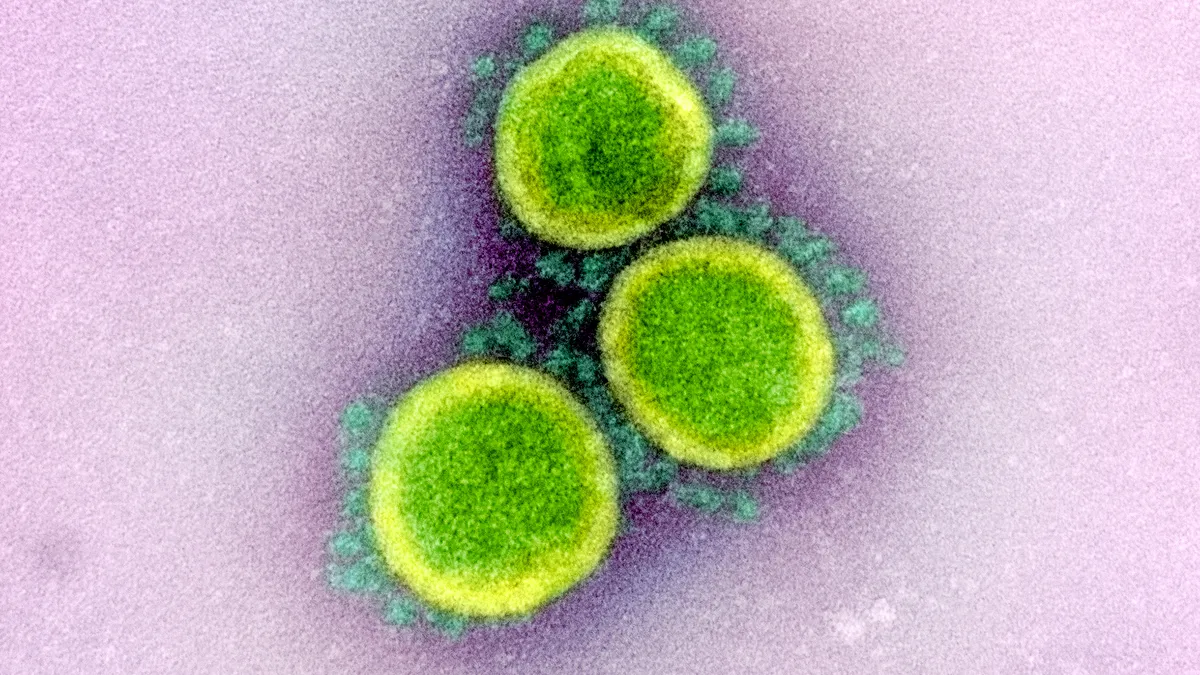Dive Brief:
- Quidel late Thursday reported third-quarter revenue of more than $476 million, a 276% increase compared to the prior year, driven by demand for COVID-19 testing.
- The diagnostics company had a record quarter both for profit and revenue, consistent with its pre-announcement earlier this month. Quidel's rapid immunoassay product revenue increased by $294.5 million in the third quarter to $337 million, with nearly $318 million generated by its Sofia SARS antigen test.
- CEO Doug Bryant reiterated to investors that Quidel expects $800 million or more in revenue in the fourth quarter as the U.S. faces the prospect of a third wave of COVID-19 infections. Looking ahead, Bryant said the level of tests required for the ongoing pandemic will "persist well beyond 2021" and perhaps later.
Dive Insight:
Quidel's point-of-care antigen test in May became the first such diagnostic to receive FDA emergency use authorization. Quidel in the third quarter produced 2.1 million Sofia SARS antigen tests per week and Bryant believes the company can sustain that level of production throughout the fourth quarter as the flu season and colder winter weather kick in.
Bryant said they are braced to respond to the convergence of the COVID-19 pandemic and seasonal flu. Quidel earlier this month got an EUA for its Sofia 2 Flu + SARS Antigen FIA, a rapid point-of-care test to simultaneously detect and differentiate antigens from influenza A, influenza B and COVID-19 (ABC).
"We have manufactured and shipped several million dollars of our Sofia influenza tests already this quarter, as well as several million dollars of our Sofia ABC combination tests. We expect at this point to move to 80% ABC combination tests and 20% SARS Antigen test in December," Bryant said.
In terms of molecular testing, third-quarter revenue for Quidel's Lyra SARS-CoV-2 molecular assay, which first received an EUA from FDA in March, was better than expected and driven by orders from more than 120 North American customers and a handful of international sites.
CFO Randy Steward noted that third-quarter revenue for molecular diagnostics increased $58.3 million in the quarter to $63 million, driven by $57.8 million in sales of Quidel's Lyra and Lyra Direct SARS-CoV-2 products.
"We are seeing good growth from these products and believe that we will continue to see added growth as more small and mid-sized labs continue to bring PCR testing in-house," Steward said. Bryant said fourth quarter Lyra SARS revenue "looks to be about a third higher sequentially."
Quidel has a robust COVID-19 molecular diagnostics pipeline and expects to launch its Solana SARS assay in the fourth quarter once it receives an EUA, as well as a Lyra influenza A, influenza B and COVID-19 combination test.
Initially, the company intends to manufacture about 1 million Solana SARS tests per month for about 700 of its existing customers. Bryant said that Quidel expects a "meaningful" revenue contribution from Solana SARS in the fourth quarter. "We’re in the final stage of the validation data that we need to submit to the FDA," he added.
Quidel's other product launches planned for the fourth quarter include a Sofia serology assay, a point-of-care finger stick combination test for IgG antibodies. The company also expects to launch QuickVue SARS, which Bryant said "promisingly has shown similar performance in terms of agreement with PCR to Sofia SARS Antigen."
QuickVue SARS is "at the FDA under active review right now," Bryant said. He contends that Quidel will have the manufacturing capacity "at some point" in 2021 to produce 50 million of the QuickVue SARS tests per month as the company looks to target the coronavirus at-home testing market. "It is our intent to be in that segment. It’s one of the reasons why we feel like we need to make the investment to get to 50 million tests per month."
Steward pointed to a one-year $65 million NIH contract, which began in July, meant to directly support the addition of new Quidel immunoassay manufacturing lines. As part of the agreement, the company will provide Sofia 2 instruments and COVID-19 assays to NIH.
"We're certainly being asked by a number of folks, including the government to ramp up production to really high levels. And so I think it's the expectation that this is going to persist well beyond 2021, whether it's 2022, 2023, I couldn't say at this stage. But at this point, it feels to me like this will not abate in terms of the level of tests required certainly until sometime in 2022 and beyond," Bryant told investors.
Quidel will hold a virtual Investor Day on Nov. 12, at which time Bryant said the company will provide further details on its COVID-19 diagnostics pipeline.











